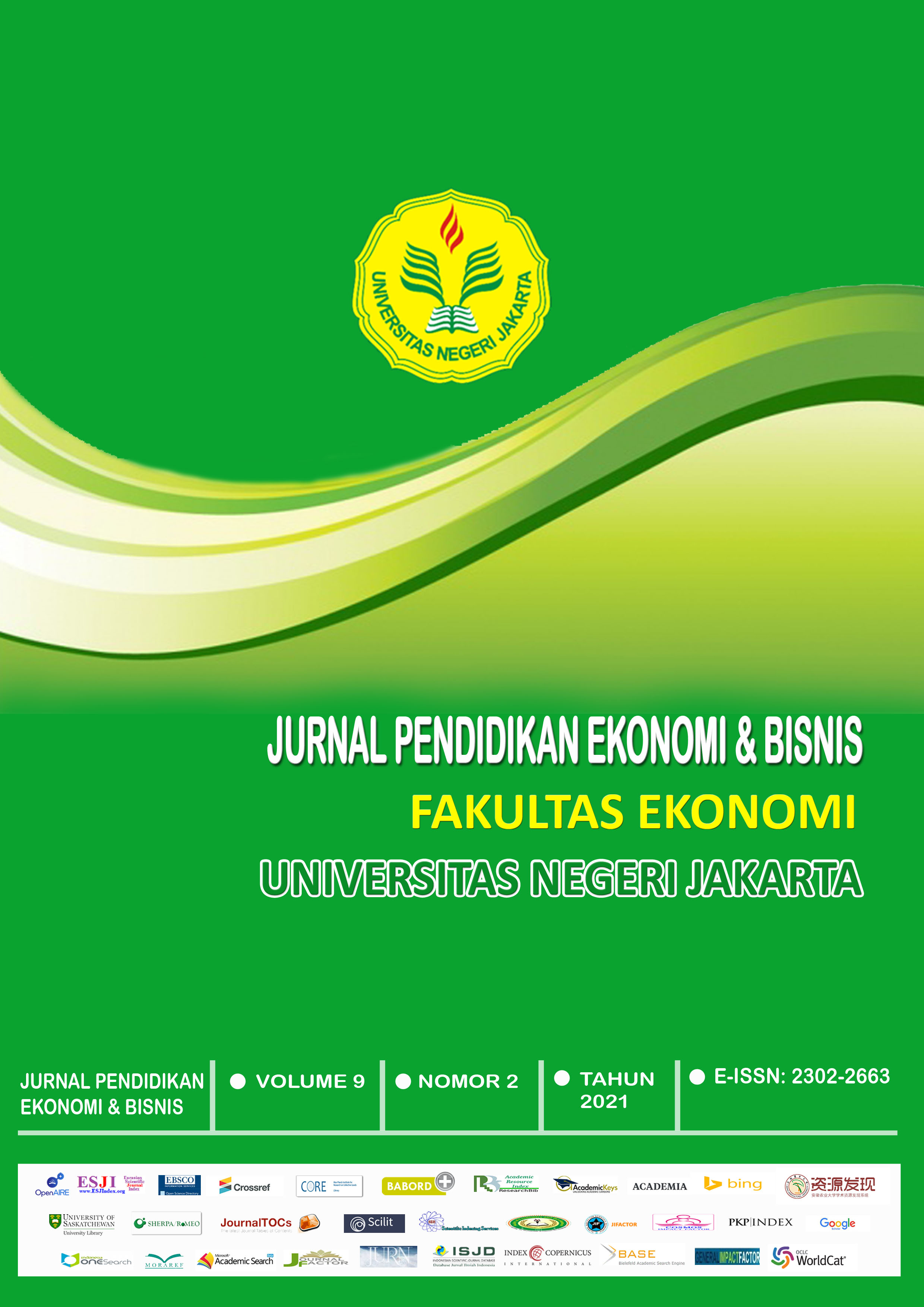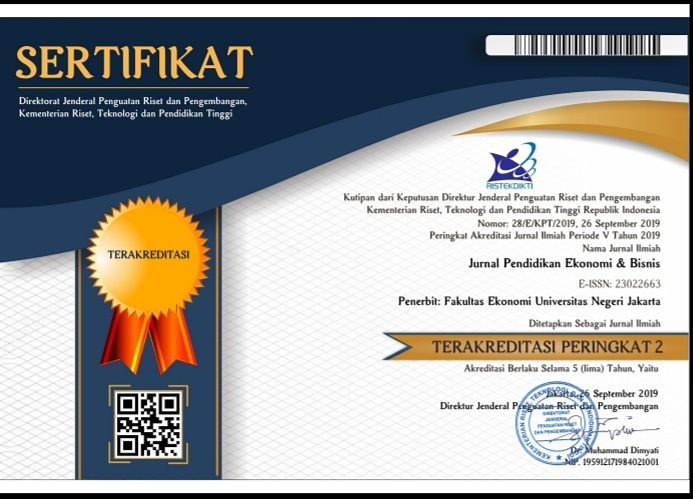Do Entrepreneurial Mindset and Perceived Behavioural Control Matter Entrepreneurial Intention?
DOI:
https://doi.org/10.21009/JPEB.009.2.5Keywords:
Entrepreneurial intention, Entrepreneurial self-efficacy, Entrepreneurial mindset, Perceived behavioral controlAbstract
Entrepreneurial Intention is a component that can explain the mindset and have a substantial impact on individual behavior. This fact indicates how hard a person's mindset is in trying and how much effort is put in so that the desired behavior can be carried out. This study examines the direct and indirect effects of an entrepreneurial mindset, perceived behavioral control, and entrepreneurial self-efficacy on entrepreneurial intention. A total of 354 students in Malang took part in this research. We used descriptive statistical analysis, multiple linear regression analysis, and path analysis. The study results found that the entrepreneurial mindset and perceived behavioral control affected entrepreneurial self-efficacy—similarly, entrepreneurial self-efficacy, entrepreneurial mindset, and perceived behavioral control on entrepreneurial intention. Our results also found that entrepreneurial self-efficacy failed to mediate the effect of the entrepreneurial mindset on entrepreneurial intention.
Downloads
Published
How to Cite
Issue
Section
License
Articles in Jurnal Pendidikan Ekonomi & Bisnis are Open Access articles published under the Creative Commons CC BY-NC-SA License This license permits use, distribution and reproduction in any medium for non-commercial purposes only, provided the original work and source is properly cited. Any derivative of the original must be distributed under the same license as the original.








